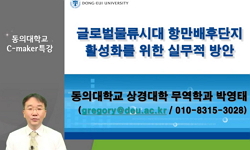Recently, the Knowledge Industry Center has been in charge of diverse roles, including job creation, revitalization of the local economy, urban environment readjustment and upgrading the industrial structure, mainly by knowledge industries and informa...
http://chineseinput.net/에서 pinyin(병음)방식으로 중국어를 변환할 수 있습니다.
변환된 중국어를 복사하여 사용하시면 됩니다.
- 中文 을 입력하시려면 zhongwen을 입력하시고 space를누르시면됩니다.
- 北京 을 입력하시려면 beijing을 입력하시고 space를 누르시면 됩니다.
지원시설 활성화를 고려한 지식산업센터 실내 공간 계획에 관한 연구 = A Study on the Interior Space Planning of Knowledge Industry Center Considering the Activation of Support Facilities
한글로보기https://www.riss.kr/link?id=A106304696
- 저자
- 발행기관
- 학술지명
- 권호사항
-
발행연도
2019
-
작성언어
Korean
- 주제어
-
등재정보
3903
-
자료형태
학술저널
-
수록면
92-95(4쪽)
- 제공처
-
0
상세조회 -
0
다운로드
부가정보
다국어 초록 (Multilingual Abstract)
Recently, the Knowledge Industry Center has been in charge of diverse roles, including job creation, revitalization of the local economy, urban environment readjustment and upgrading the industrial structure, mainly by knowledge industries and information and communication-related high-tech companies. On the other hand, the support facilities inside the Knowledge Industry Center should consist of a space for supporting tenant businesses, improving the working environment, and conducting various activities, but in order to maximize the economic profits of the implementers, the use of the support facilities will be formed and sold as commercial facilities for profit. These commercialized support facilities (mainly for restaurants, convenience stores, food and beverage stores) are operating mainly on members of the tenant, and thus have a growing number of poor profitability, while the true support space (such as non-commercial space for resting and refilling) for the tenant members is poor. It is estimated that this will not only develop into a worsening business situation for neighboring facilities, but also cause many setbacks in the quality of their work as well as the efficiency of their members. The knowledge-industry center built with this concept also lacks communication with the community. The purpose of this study is to investigate and analyze the correlation between the use of support facilities for residents in the real sense and the use of neighborhood living facilities in the commercial sense, and to present a new paradigm of knowledge industry centers through active communication with the community.
목차 (Table of Contents)
- Abstract
- 1. 서론
- 2. 지식산업센터에 대한 이론적 고찰
- 3. 사례조사 및 분석
- 4. 결론
- Abstract
- 1. 서론
- 2. 지식산업센터에 대한 이론적 고찰
- 3. 사례조사 및 분석
- 4. 결론
- 참고문헌
동일학술지(권/호) 다른 논문
-
공간의 가치 : 한국과 미국의 주택은 왜 이렇게 다른가?
- 한국실내디자인학회
- 박성식
- 2019
- 3903
-
비주얼메타포(visual metaphor)적 표현요소가 적용된 브랜드 커피전문점 공간디자인에 관한 연구
- 한국실내디자인학회
- 김영진(Kim, Young-Jin)
- 2019
- 3903
-
VMD기법을 적용한 토탈 인테리어 브랜드쇼룸 실내 공간 계획에 관한 연구
- 한국실내디자인학회
- 이선화(Lee, Sun-Hwa)
- 2019
- 3903
-
- 한국실내디자인학회
- 주아름(Joo, Ah-Reum)
- 2019
- 3903





 DBpia
DBpia






